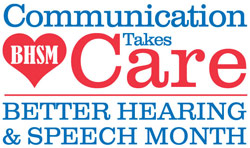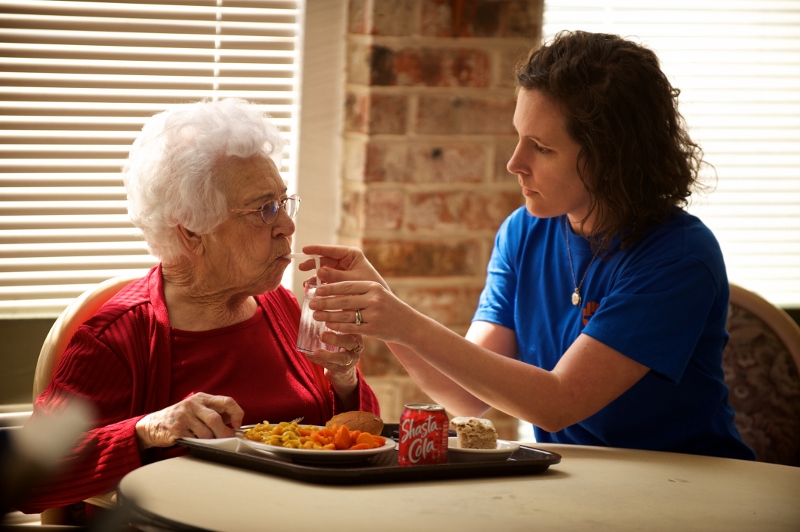May is Better Speech and Hearing Month! This article is intended to celebrate the Speech Language Pathology profession and provide education on the practice.
Therapy Center is honored to employ SLPs or better known as Speech-language pathologists in our company. They provide services in every setting along the continuum of care including home health, skilled nursing, outpatient, and inpatient rehabilitation.
You may wonder, what does an SLP do exactly?
According to the American Speech and Hearing Association (ASHA), SLPs work to prevent, assess, diagnose, and treat speech, language, social communication, cognitive-communication, and swallowing disorders in children and adults. The profession continues to grow due to increased numbers in aging populations and medical advances that improve the survival rate of trauma and stroke patients.
What types of disorders can a Speech Language Pathologists treat?
SLPs can treat a variety of disorders and often work with an interdisciplinary team including physicians, social workers, physical, and occupational therapists. Common disorders treated include:
- Speech disorders – occur when a person has difficulty producing speech sounds correctly or fluently (e.g., stuttering) or has problems with his or her voice or resonance.
- Language disorders – occur when a person has trouble understanding or sharing thoughts, ideas, and feelings either verbally or written.
- Social communication disorders– occurring when a person has trouble with the social use of verbal and nonverbal communication. These disorders may include problems greeting, commenting, asking questions or following rules for conversation and story-telling. Social communication disorders are found individuals with conditions, such as traumatic brain injury.
- Cognitive-communication disorders – include problems organizing thoughts, paying attention, remembering, planning, and/or problem-solving. These disorders usually happen as a result of a stroke, traumatic brain injury, or dementia, although they can be congenital.
- Swallowing disorders (dysphagia)- relate to feeding and swallowing difficulties, which may follow an illness, surgery, stroke, or injury.
Additionally, SLPs
- Provide aural rehabilitation for individuals who are deaf or hard of hearing.
- Provide augmentative and alternative communication (AAC) systems for individuals with severe expressive and/or language comprehension disorders, such as autism spectrum disorder or progressive neurological disorders.
View our blog this month for more information on speech therapy and visit our website to learn more on the services offered.

